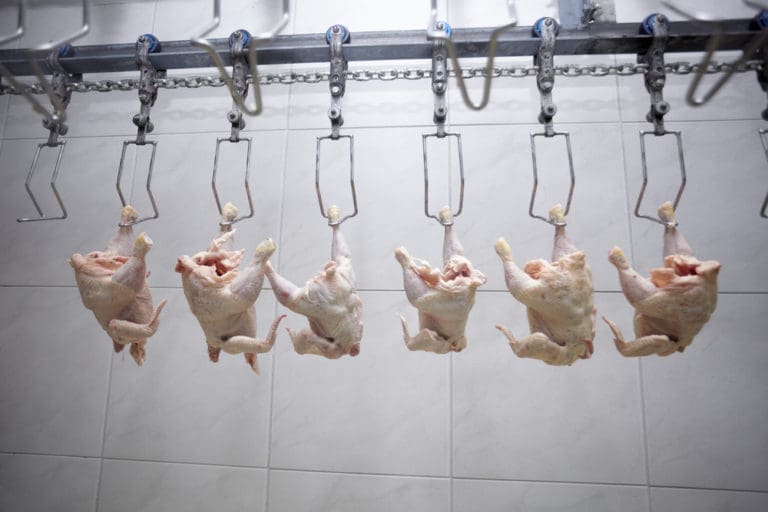 One unexpected outcome of the public health crisis of 2020 is that more people than ever now want to know about the topic of meat processing and packing. Meat processing is essential to the American diet and to the agricultural supply chain, yet few people truly have a deep understanding of the details.
One unexpected outcome of the public health crisis of 2020 is that more people than ever now want to know about the topic of meat processing and packing. Meat processing is essential to the American diet and to the agricultural supply chain, yet few people truly have a deep understanding of the details.
Meat is a staple part of the American diet, whether it comes from cows, chickens, pigs, or seafood. The average American was on track to consume about 222 pounds of meat in 2018, a record high. That shattered the record first set back in 2004. At the same time, domestic meat production exceeded 100 billion pounds.
While plant-based foods are getting a greater share of attention at the dinner table, there is good reason to believe that meat as we know it will always be king. That represents opportunity, but also a challenge for the farmers, drivers, and others who guide that meat safely from farm to table.
For logistical reasons, meat generally travels a shorter distance than produce and many other foods. Likewise, the widely quoted figure that food goes 1,500 miles to reach consumers is known to be an oversimplification.
Still, for every mile traveled and every hour of processing, meat must be kept strictly at a safe temperature.
For beef, that temperature is 28 to 32 degrees Fahrenheit, making its temperature demands even harsher than milk – a substance notorious for rapid spoilage. However, for meat freezing and adequate preparation of a fresh carcass, required temperatures can be much lower: Often in the region of -10 degrees Fahrenheit.
Storing and Preparing Meat for Consumption Requires Intensive Refrigeration
From the moment the processing of a meat animal is started, the carcass must be stored under precise conditions to ensure maximum safety. A brief lapse in cooling performance can create conditions for bacteria to proliferate. This begins as temperatures rise toward 40 degrees Fahrenheit and increases rapidly should air temperature reach the 50-degree mark.
Under the strict standards of meat packing and processing, meat can be disqualified from sale for any number of reasons stemming from poor refrigeration quality. A refrigeration problem lasting as short as 2 minutes might lead a highly trained meat inspector to recognize that a cut of meat is not suitable for sale.
This is no surprise considering the risk of food-borne illnesses such as E. coli, which is dreaded for its ability to cause significant intestinal infection through a very small initial bacterial exposure. Some cases of E. coli lead to death or severe symptoms that may have permanent consequences. In chicken, the key threat is salmonella.
Reliable commercial compressor systems are the first line of defense against these and other serious issues.
Meat Plant Leaders Optimize Their Operations Through Superior Commercial Compressors
The compressor operates as the “heart” of any commercial cooling system. It compresses refrigerant gas and allows it to take its course through the rest of the system. If the compressor is damaged for any reason, the rest of the system’s components will be less efficient and more prone to mechanical failure.
Likewise, if the compressor fails, the entire system will come to a stop.
Meatpacking and processing operations require some of the highest levels of performance per square foot of any industrial cooling application. With that in mind, facility leaders looking for ways to get more value from their packing floor carefully match compressors to their needs, thus raising end-to-end efficiency.
In that never-ending quest, Copeland commercial compressors have been a powerful asset.
Copeland Commercial Compressors Power Meat Packing Plants Around the United States
Meatpacking plants require durable compressors that must often function in a limited space. Although energy efficiency is not the most vital consideration, it can help businesses save thousands on their annual operating costs. Likewise, compressors must operate smoothly and be suited to a potentially harsh environment.
With years of feedback from the meat industry in mind, Copeland designs its powerful and efficient commercial compressors to meet these needs. Among them is the 3DS3A150ETFD. This semi-hermetic, 15 horsepower, 460-volt disc compressor operates at 194,000 BTU as one of the most common models in today’s agriculture sector.
You’ll find it at meatpacking plants, storage facilities, and even refrigerated trucks that haul meat.
American-based Copeland has a reputation for compressors that are easy to install, use, and maintain. Founded in 1921, the company has its headquarters in Sidney, OH and holds a major compressor plant in Lebanon, MO.
Copeland can be even more affordable if you get a remanufactured compressor. A remanufactured compressor has been disassembled, with key components replaced, all elements cleaned, and the unit tested under load. This is a terrific way for meat packing plants to get “like new” performance at a substantial discount and with faster turnaround than buying from a brand-affiliated wholesaler.












